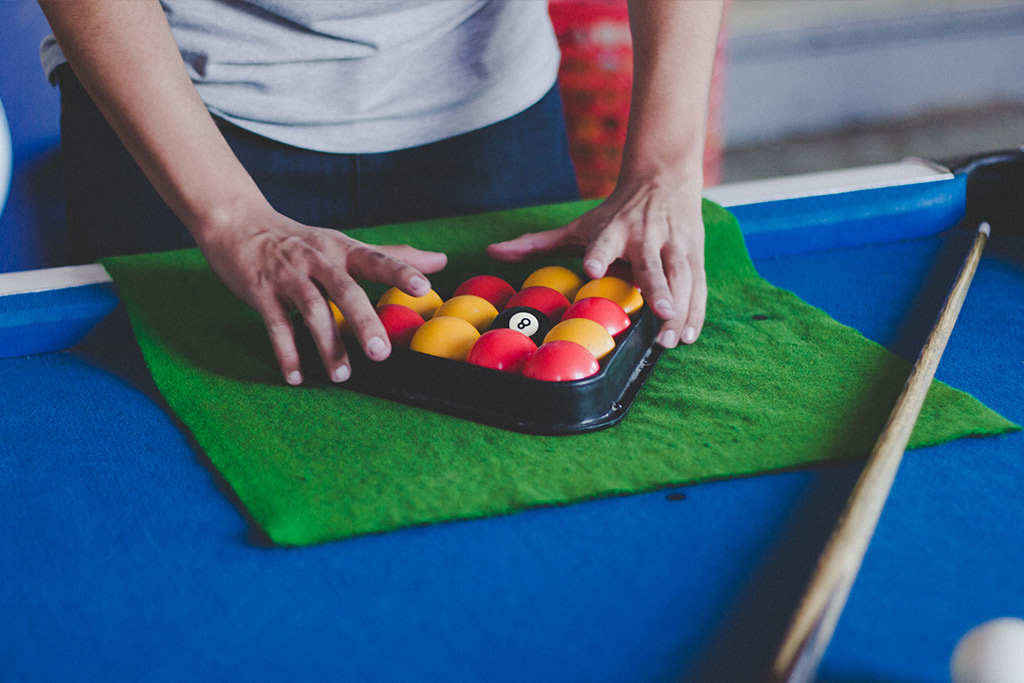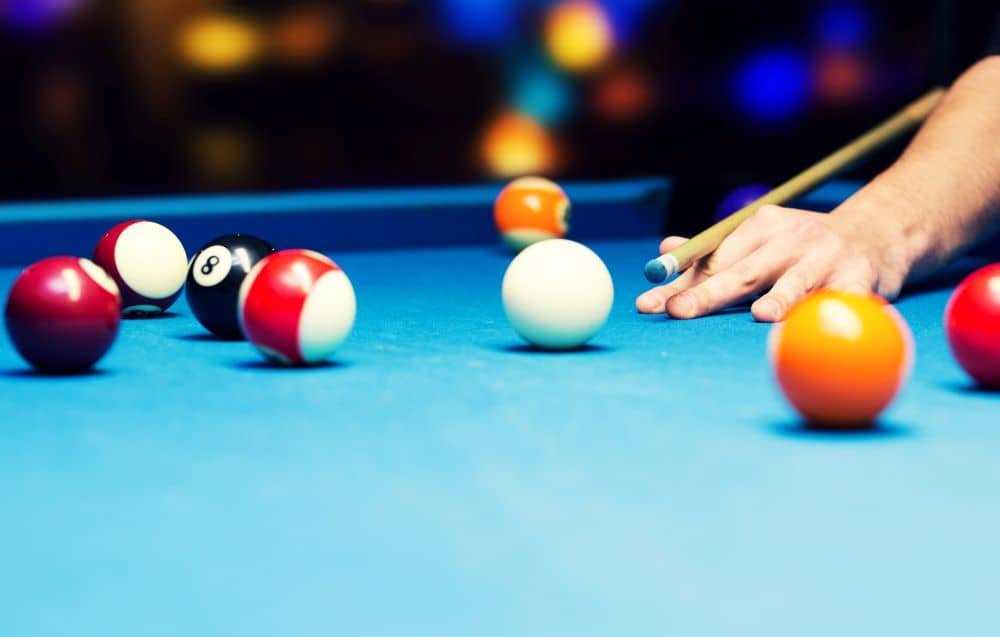Snooker & pool differ significantly in rules, table size, & gameplay. Snooker is played on a larger table (12×6 feet) with 21 balls, including 15 reds & 6 colored balls, emphasizing strategy & precision. Players score by potting balls in a specific order, with more complex rules. In contrast, pool is typically played on a smaller table (7 To 9 feet) with 16 balls & simpler rules, like 8-ball or 9-ball formats. The gameplay in pool is generally faster & less formal, emphasizing quick action & skillful shots, making both games uniquely challenging & enjoyable.
Difference Between Snooker and Pool: Rules, Tables, and Gameplay. Discover The key differences between snooker & pool! Explore rules, table sizes, & gameplay tips To enjoy your next game with friends or at The club.
Difference Between Snooker & Pool: Rules, Tables, & Gameplay
Overview of Snooker
Snooker, a cue sport, captivates players worldwide with its elegant gameplay & intricate rules. Originating during 19th century, this game evolved into beloved pastime many enjoy today. Featuring 21 balls, including 15 red balls, 6 colored balls, & a cue ball, snooker demands both skill & strategy from participants.
Players must pot balls in specific order, starting with reds followed by colors. Each color carries different point values, adding layers depth gameplay. Matches can last several hours, emphasizing patience & precision. Spectators appreciate snooker’s tactical nuances, making every frame a potential masterpiece.
Many enthusiasts & professionals alike have dedicated countless hours perfecting their skills, driven by desire for excellence. For a deeper understanding of snooker’s charm, explore more [here](https://google.com).
Overview of Pool
In contrast, pool represents diverse family of cue sports, commonly enjoyed across various settings, from bars lounges To competitive tournaments. Recognized for its fast-paced nature, pool generally features 16 balls: one cue ball & 15 object balls. Object balls come in various styles, including solids & stripes, & players aim To pocket them To win.
Different formats exist within pool, including eight-ball, nine-ball, & ten-ball, each with unique rules & gameplay. Speed & execution take precedence in this game, providing quick thrills players crave. Social aspect pool fosters camaraderie among friends elevates its appeal even further.
Whether focusing on strategy or showcasing impressive shots, pool maintains a popular place in leisure activities & competitive scene alike. As I played both games, I noticed fundamental differences in pace, atmosphere, & tactics, enriching my perspective on cue sports.
Differences in Tables
Table dimensions & characteristics significantly differentiate snooker from pool. Snooker tables measure 12 feet long by 6 feet wide, providing ample space for players demonstrate their skills. Featuring more pockets, snooker tables require precision shot-making as players navigate vast playing area.
Conversely, pool tables come in various sizes, with The most common dimensions being 7, 8, & 9 feet long. Such variability makes pool more accessible across different play environments. Pocket dimensions also differ; pool pockets tend To be larger, allowing for greater shot success compared To snooker.
Additionally, surface materials can vary between both games. Snooker tables typically feature finer cloth, enhancing ball control & speed. Thus, players must adapt strategies according table type & style. Understanding nuances becomes essential for proficient gameplay.
Gameplay Mechanics
Gameplay mechanics in snooker demand critical thinking & strategy. Players must concentrate on potting objects while managing position for subsequent shots. Each turn offers a chance build points & control table, emphasizing strategic approaches players take throughout matches.
On other hand, pool gameplay emphasizes speed & aggression. Players often execute shots rapidly, competing not only against opponents but also against time. Quick thinking plays crucial role here, as players must adapt rapidly while maintaining focus on pocketing balls.
Due To differences in mechanics, players who thrive in one may struggle with aspects of another. Success hinges on one’s ability To grasp game-specific rules & adapt accordingly. Mastering both games can enhance overall skill set & promote versatile playing style.
Rules of Snooker
Snooker rules define structure of gameplay, dictating how points are awarded & when fouls occur. Players must accumulate total points To win frames, with multiple frames culminating in overall match result. Points gained through potting balls, with values based on color & sequence.
Additionally, fouls result when players fail make valid shots. Common fouls include failing To hit a ball, potting wrong ball, or leaving opponent with advantageous position. Such infringements can provide opponents with significant scoring opportunities, emphasizing importance of strategic shots.
Scoring intricacies & penalty nuances make snooker highly tactical endeavor. Understanding those details enables players navigate frames successfully while maximizing scoring potential. Thus, serious competitors often immerse themselves in rules for competitive advantage.
Rules of Pool
Like snooker, pool follows set of rules defining how gameplay proceeds. Players can choose from various formats, each with distinctive regulations. For example, in eight-ball, players must pocket either solids or stripes before claiming victory by potting eight ball.
Fouls in pool also exist, although they differ from snooker. Common infractions include scratching cue ball or failing To hit intended object ball. Such mistakes can lead opponents gaining advantageous position while providing opportunities score.
Understanding different formats & their associated rules aids players in adapting strategies accordingly. Awareness fosters more competitive nature, ensuring participants stay engaged while honing skills. Thus, rules play critical role maintaining integrity of pool games.
Comparison of Skill Levels
Skill levels required for proficient gameplay vary significantly between snooker & pool. While both demand practice & dedication, nuances in techniques & strategies emerge as crucial factors. Players often find themselves gravitating toward one style over another based on personal preference & strengths.
In snooker, precision & tactical thinking take precedence. Many players dedicate years mastering intricate techniques required for successfully executing shots. Patience emerges as a defining trait among advanced competitors, showcasing their deep understanding of gameplay.
Conversely, pool players thrive in fast-paced environment. Skill development focuses largely on quick execution & adaptability. Shorter game durations allow for more rapid learning & skill acquisition. Thus, players often experience an acceleration in development, promoting their engagement in competitive atmosphere.
Features of Games
- 🎱 Snooker requires 21 balls.
- 🎱 Pool offers various formats.
- 🎱 Snooker involves greater table size.
- 🎱 Pool tables vary in size.
- 🎱 Snooker emphasizes precision.
- 🎱 Pool favors speed & execution.
- 🎱 Both games promote strategic thinking.
Comparison Table
| Aspect | Snooker 🏆 | Pool 🎱 |
|---|---|---|
| Table Size | 12ft x 6ft | 7ft, 8ft, 9ft |
| Number of Balls | 21 Balls | 16 Balls |
| Gameplay Style | Strategic & Precision-focused | Fast-paced & Dynamic |
| Scoring | Points-based on sequence | Based on objects pocketed |
| Fouls | More penalties | Fewer penalties |
Popular Variations
Within both snooker & pool, numerous variations exist that cater diverse preferences & playstyles. Different formats provide players with opportunities explore unique aspects each game while enhancing skills. Knowing variations allows participants settle into gameplay more comfortably.
For instance, in snooker, variations such as “English Billiards” allow players engage in different gameplay styles while maintaining core mechanics. Likewise, “Chinese Snooker” introduces additional rules & strategic elements that challenge traditional players.
In pool, variations like “Straight Pool” & “Cutthroat” expand upon standard playstyles. Each variation brings fresh challenges, promoting further skill development while offering exciting social experiences. As players delve deeper into cue sports, they’ll discover multitude of engaging options available.
Discover The key differences between snooker & pool! Explore rules, table sizes, & gameplay tips To enjoy your next game with friends or at The club.

What are The main differences in The rules between snooker & pool?
The rules of snooker & pool differ significantly. In snooker, players must alternate potting red balls followed by a colored ball, & they score points for each successful shot. In pool, The rules depend on The specific game variant (like eight-ball or nine-ball), but generally, players aim To sink all their assigned balls & then The eight ball for victory.
How do The tables differ for snooker & pool?
Snooker tables are generally larger, measuring 12 feet by 6 feet, & have smaller pockets compared To pool tables, which can vary in size but are typically 7, 8, or 9 feet long. The felt on a snooker table is often finer & The cushions are designed To respond differently To The balls.
What kind of balls are used in snooker & pool?
In snooker, there are 22 balls: 15 red balls, 6 colored balls, & 1 white cue ball. Pool features a set of 16 balls: 7 solids, 7 stripes, & 1 black eight ball, along with The white cue ball. The sizes of The balls also differ, with snooker balls being smaller in diameter than pool balls.
Can you explain The object of The game in snooker & pool?
In snooker, The objective is To score more points than your opponent by potting balls in a specific order. In pool, The goal can vary based on The game variant, but typically involves sinking all your designated balls & then The eight ball To win The game.
How is The cueing technique different in snooker compared To pool?
Cueing in snooker often requires a more precise, controlled stroke due To The smaller pockets & larger table. Players need To master a variety of spins & angles. In pool, The technique may be more straightforward, focusing on power & accuracy, depending on The specific game being played.
Is snooker a more strategic game than pool?
Many players consider snooker To be more strategic due To its complex rules, large table, & emphasis on safety plays. Players often need To think several shots ahead. Pool can also be strategic but tends To have a faster pace & can encourage more aggressive play.
What are The typical match formats for snooker & pool?
Snooker matches can be played in various formats, including best of 19 or best of 25 frames in professional tournaments. Pool matches often use formats like race To 7 or 9, depending on The game style & level of competition.
How does scoring work in snooker versus pool?
In snooker, players score points based on The value of The balls potted, with reds worth 1 point & colored balls worth different amounts. In pool, scoring is typically straightforward, as players simply aim To sink their assigned balls while keeping track of The eight ball.
What are The common fouls in snooker & pool?
Common fouls in snooker include failing To hit The correct ball first or leaving The opponent no legal shot. In pool, typical fouls might involve scratching The cue ball or hitting The wrong ball first. Each game has its own specific sets of penalties & consequences for fouls.
Are there major tournaments for snooker & pool?
Yes, snooker has prestigious tournaments like The World Snooker Championship & The UK Championship. Pool also has major competitions, including The WPA World Nine-ball Championship & The Mosconi Cup, showcasing elite players in both formats.
Conclusion
In summary, snooker & pool are two popular cue sports that have distinct differences in rules, tables, & gameplay. Snooker is played on a larger table with smaller pockets & involves tricky strategies, while pool is generally played on smaller tables with larger pockets & a more straightforward approach. Understanding these differences can enhance your appreciation for each game. Regardless of which you prefer, both sports offer fun challenges & social enjoyment. So, whether you’re sinking balls into pockets in a game of pool or mastering your shots in snooker, there’s always excitement waiting for you!











